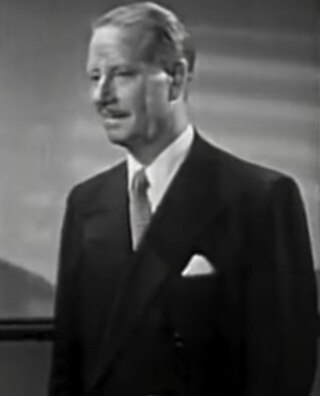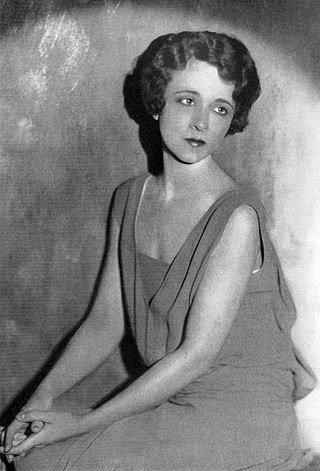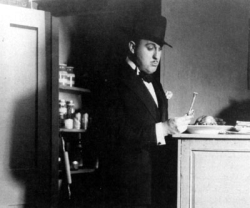
Nappanee is a city in Elkhart and Kosciusko counties in the U.S. state of Indiana. The population was 6,648 as of the 2010 U.S. Census and had grown to 6,913 by the 2020 U.S. Census. The name Nappanee is thought to mean "flour" in the Algonquian language.

Rudy Henry Wiebe is a Canadian author and professor emeritus in the department of English at the University of Alberta since 1992. Rudy Wiebe was made an Officer of the Order of Canada in the year 2000.

Goshen College is a private Mennonite liberal arts college in Goshen, Indiana. It was founded in 1894 as the Elkhart Institute of Science, Industry and the Arts, and is affiliated with Mennonite Church USA. The college is accredited by the Higher Learning Commission and has an enrollment of 824 students. While Goshen maintains a distinctive liberal Mennonite worldview and Mennonites make up 30 percent of the student body, it admits students of all religions.

The Adventure of the Christmas Pudding and a Selection of Entrées is a short story collection written by Agatha Christie and first published in the UK by the Collins Crime Club on 24 October 1960. It is the only Christie first edition published in the UK that contains stories with both Hercule Poirot and Miss Marple, the writer's two most famous detectives. It retailed in the UK for twelve shillings and sixpence (12/6) and comprises six cases. It was not published in the US although the stories it contains were published in other volumes there.

Franklin Pangborn was an American comedic character actor famous for playing small but memorable roles with comic flair. He appeared in many Preston Sturges movies as well as the W. C. Fields films International House, The Bank Dick, and Never Give a Sucker an Even Break. For his contributions to motion pictures, he received a star on the Hollywood Walk of Fame at 1500 Vine Street posthumously on February 8, 1960.

Richard Damon Elliott was an American character actor who played in over 240 films from the 1930s until the time of his death.

The Shadow Strikes is a 1937 black and white American film based on the story Ghost of the Manor written by Walter B. Gibson under the pen name Maxwell Grant. The Shadow was featured on a popular radio show and also as a pulp magazine crime fighter.

O. Henry's Full House is a 1952 American anthology film made by 20th Century Fox, consisting of five films, each based on a story by O. Henry.

Spring Fever is a 1927 American silent comedy film starring William Haines, Joan Crawford, and George K. Arthur, and directed by Edward Sedgwick. Based on the 1925 play of the same name by Vincent Lawrence, this was the second film starring Haines and Crawford, and their first onscreen romantic teaming.

Hobart Cavanaugh was an American character actor in films and on stage.

The Henry P. Deuscher House is a historic farmhouse in the countryside of the southwestern part of the U.S. state of Ohio. Located near the city of Trenton, it was originally home to one of the area's leading farmers, and it has been named a historic site.

Theodore von Eltz was an American film actor, appearing in more than 200 films between 1915 and 1957. He was the father of actress Lori March.

Cyril Ring was an American film actor. He began his career in silent films in 1921. By the time of his final performance in 1951, he had appeared in over 350 films, nearly all of them in small and/or uncredited bit parts.

Bergetta "Dorothy" Peterson was an American actress. She began her acting career on Broadway before appearing in more than eighty Hollywood films.

Morgan Wallace was an American actor. He appeared in more than 120 films between 1914 and 1946, including W.C. Fields' It's a Gift (1934) where he persistently asks Fields for some "Kumquats". He supported Fields again in My Little Chickadee (1940).
David Delmar Watson was an American child actor and news photographer.

Garry Marsh was an English stage and film actor.

Make a Wish is a 1937 American musical comedy film directed by Kurt Neumann and starring Bobby Breen, Basil Rathbone and Ralph Forbes.

Fisherman's Wharf is a 1939 American drama film directed by Bernard Vorhaus from a screenplay by Bernard Schubert, Ian McLellan Hunter, and Herbert Clyde Lewis. The film stars Bobby Breen, Leo Carrillo, Lee Patrick, and Slicker, "the silly seal". Produced by Sol Lesser for RKO Radio Pictures, who also distributed the film, it was released on February 3, 1939.

Hit Me is a 1996 American crime film directed by Steven Shainberg starring Elias Koteas, Laure Marsac, and William H. Macy. The film is based on the novel A Swell-Looking Babe by Jim Thompson.



















